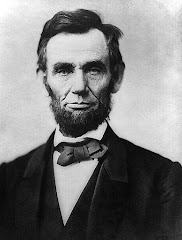 |
| The Star of Bethlehem . |
Every time Christmas comes, I am in awe of the far-reaching
influence and legacy that this humble carpenter from Nazareth
Commercialism aside, what with all the merchandise being
pedaled to us by merchants, there is no other season of the year where
gift-giving is so pervasive and the air is filled with the ambience of kindness
and forgiveness. It is this time of the
year where people are more tolerant and forgiving, letting go of offenses
against them with the usual remark, “forget about it, it’s Christmas anyway”; it is this time of the year where goodwill
among men pervades and you see people with happy countenance everywhere.
There is no other event where even fighting men dropped
their rifles and muted their canons and crossed enemy lines to engage in
Christmas greetings and songs and even exchanged gifts, as was done by German
and British soldiers around Christmas time during World War I.
Whether you are a believer or not, the song is right. Christmas
is “the most wonderful time of the year.”
Merry Christmas to you all and let us keep the spirit of kindness
and giving alive!














